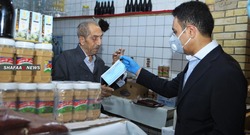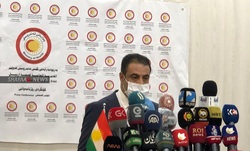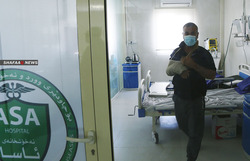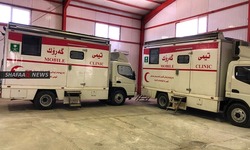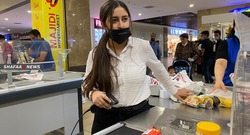The "rockets war" prompts the displaced to remain in Kurdistan
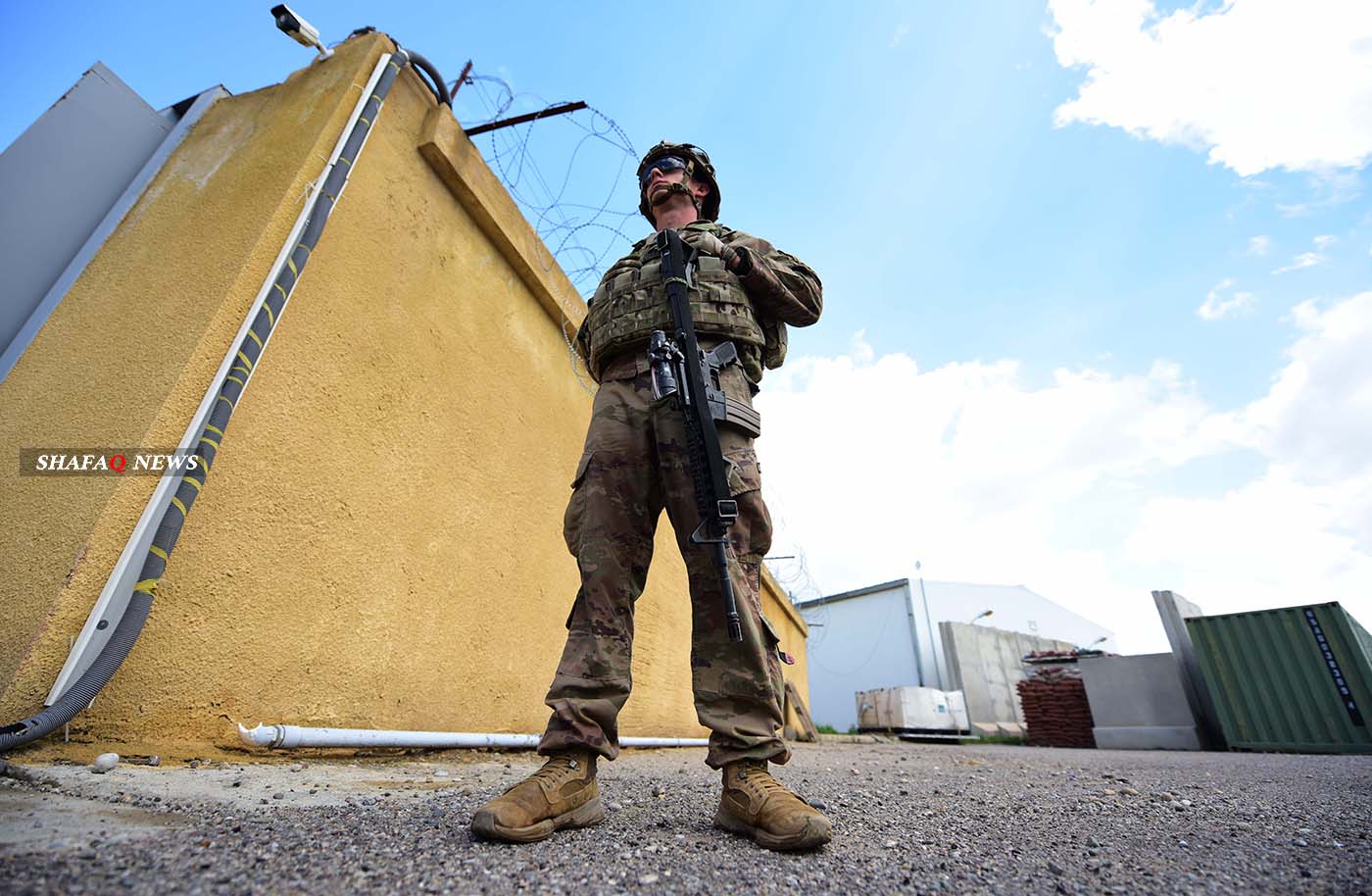
Shafaq News / Displaced people in the Kurdistan region prefer to stay there rather than return to their areas in Al-Anbar, which are under rocket attacks exchanged between Iraqi factions and the Global Coalition. The displaced justify that by, "No sane person gives up the grace of security and employment."
Many families displaced to Kurdistan prefer to stay in the Region due to its stability of security and the social life they described as "distinctive" from the rest of the country, which prompted them to stay and leave their daily bombarded cities.
"More than 20 families refuse to return to their area for fear of the rockets of mutual bombardment between the Coalition and the brigades," revealed a senior local official in Al-Baghdadi sub-district of Hit district in western Al-Anbar, where Ayn al-Asad airbase is located, where Global coalition forces are stationed.
"The sound of rockets frighten the residents, and this is the most prominent obstacle to closing the displacement file in the governorate. It might even be what caused them to flee," the official, who preferred to remain anonymous, added.
"The people of al-Baghdadi are financially simple, and can not afford to rent a house. Hence they did not leave the area," he continued.
"If I could stay there with my brother in Al-Sulaymaniyah governorate, I would not think of returning to an area newly freed from an oppressor only to be occupied by two oppressors," said a 40-year-old resident of Al-Baghdadi.
"whenever Ayn Al-Asad is bombed, children can not sleep and spend the night crying out of terror, and we can do nothing but pray and hope to escape the war of these killers. I can not even let my children play outside the house, because they may not survive if a rocket lands on it," he added, asking to remain anonymous.
"Give me one reason to return," Mohsen Mahmoud, from Al-Qaim border area with Syria, asked sarcastically, "Should I go back to be lulled to sleep by rockets' sounds and terror? To the lack of services? Or to arbitrary arrest campaigns, fabrication of charges, unemployment, and many inhumane cases?"
"I will not return to Al-Qaim as long as the situation remains the same. No sane person gives up the grace of security, work, and reassurance. Since I came to Erbil, I work in restaurants and cafés surrounding Erbil Castle, and I am not even treated as an intruder. Rather, it is as if I already belong here," Mahmoud, who lives in Erbil, the capital of the Kurdistan Region, added.
Mazen al-Rishawi, Al-Anbar's governor's advisor for displaced persons, told Shafaq News agency, "most of the families prefer to stay in Erbil because of the jobs provided for them, safety, stable life, and the lack of marginalization in the Region."
"More than 90% of the families displaced to Erbil have returned thanks to the cooperation of the Kurdistan Regional Government (K.R.G.) to closing the displacement file in Al-Anbar. Those who remained are there by their choice because of their jobs or like to live in the Region," al-Rishawi said.
Mohammed Al-Jumaily, a security journalist, said, "There are a lot of families, especially residents of the Upper Euphrates, who preferred to stay in Kurdistan because of military operations in desert areas and western cities, which are still volatile areas."
"The repeated attacks on Ayn Al-Aad Airbase and the logistics convoys prevent the return of many residents of these areas as well, as they pose a threat to their lives," he added.
"The great security stability in the Kurdistan Region, and the availability of jobs, have led dozens of families to sell their homes and buy alternative ones within Kurdistan, seeking a life free of fear and anxiety," Al-Jumaily concluded.
